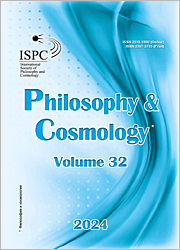The Postmodern Paradigm: Shaping the Philosophy for the Future Landscape of Public Administration
The Postmodern Paradigm: Shaping the Philosophy for the Future Landscape of Public Administration
Author(s): Valerii Akopian, Kostyantyn Zakharenko, Tetiana ZhyzhkoSubject(s): Political Philosophy, Public Administration, Structuralism and Post-Structuralism
Published by: Международное философско-космологическое общество
Keywords: Philosophy; Postmodernism; Public Administration; Future Governance; Technological Impact;
Summary/Abstract: This article delves into the profound impact of postmodernism on the trajectory and evolution of future public administration. The 20th century witnessed radical changes in worldview, marking the transition from modernity to postmodernity. The basic principles of postmodernism, encompassing deconstruction, fragmentation, future shock, and cultural relativism, have instigated a paradigm shift challenging traditional administrative frameworks (M. Foucault, J.-F. Lyotard, A. Toffler, etc.). The article explores how these postmodern tenets influence administrative practices, power structures, and the very nature of governance. Postmodernity is characterized by a unique attitude towards truth, acknowledging its relativity, and by decentration, the absence of a single center, replaced by multipolarity and globalization. “Post-truth” replaces truth, posing new challenges to the future of public administration. The public administration of the future will be shaped by existing trends, including Public-Private Partnerships (PPP), Non-Governmental Organizations (NGOs), Corporate Social Responsibility (CSR), etc. It will also depend on modern technologies such as artificial intelligence, blockchain, data analysis, and data-driven decision-making, as underscored by the need for digitalization in response to the pandemic (according to EIB). However, alongside advantages, there are also challenges, such as issues of liability in the use of AI for future public administration. These risks can be mitigated through collaborative and participatory governance models, adaptive leadership, an emphasis on inclusivity, diversity, and social equity, addressing environmental concerns, advanced training courses, and other strategic measures.
Journal: Philosophy and Cosmology
- Issue Year: 32/2024
- Issue No: 32
- Page Range: 74-86
- Page Count: 13
- Language: English

